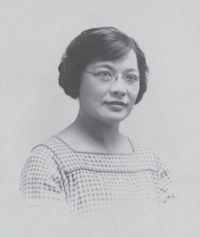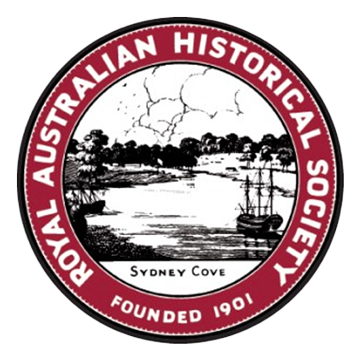Written by Elizabeth Heffernan, RAHS Volunteer
To celebrate Women’s History Month in 2020, the Royal Australian Historical Society will continue our work from last year to highlight Australian women that have contributed to our history in various and meaningful ways. You can browse the women featured on our webpage, Women’s History Month.
Rose Quong was one of Australia’s first great actors. During a career that spanned decades, continents, from stage to screen, Rose not only performed alongside some of the most famous men and women of the twentieth century but held her own while doing so. As a Chinese-Australian living during the years of the White Australia Policy, her achievements both on and off the stage are even more astounding.

Portrait of Rose Quong, presumably in Australia [Image courtesy Papers of Rose Quong, National Library of Australia, NLA MS 9796]
By the time she was eighteen Rose had a job as a public servant, but her love of performing never wavered. She learned to read Shakespeare and poetry in the 1890s and won an elocution prize for her efforts in 1903. She also helped found the Mermaid Play Society alongside students from the university. Her performances in amateur shows and competitions over the next two decades earned her a number of glowing mentions in local media. By 1923, one commentator noted that “Miss Quong has been connected with pretty well every dramatic movement in Melbourne.” [2]
Rose’s life changed in 1924 when she was forty-four years old. Winning a scholarship to study drama in London at the academy of Rosina Filippi, Rose left her home and family for an acting career overseas. “I was crazy on Shakespeare and Dickens,” Rose later recalled. “I wanted to go to London … I needed a new experience, change.” [3] She would never return to Australia.
Life in London was not all Rose had imagined. Her passion for Shakespeare met with resistance from interwar British society who instead encouraged her towards a career in “Oriental” recitation. Rose’s race had never dictated her career in Melbourne; in fact, most audiences and critics simply ignored it. This was characteristic of White Australia at the time, who embraced the successes of Chinese-Australians so long as their Chinese descent could be overlooked. In London it was the opposite – Rose’s Chinese heritage defined her. Her role as Yu-Pi in the 1929 production of The Circle of Chalk alongside Laurence Olivier and Anna May Wong earned her great critical acclaim, but most reviews characterised both Rose and Anna May as Chinese actresses, omitting their Australian and American identities respectively. [4]
Rose moved to America in the 1930s and embarked on a career as both a lecturer and writer. She continued to perform in such productions as Roger and Hammerstein’s The Flower Drum Song, and in 1971, the year before her death, she played herself in Canadian film Eliza’s Horoscope alongside Tommy Lee Jones. [5] Rose would never have reached the heights of fame she did without leaving Melbourne. Though cultural stereotyping dictated much of her career in Britain and the United States, Rose came to embrace her Chinese heritage, making her first and only visit to the country in 1936. Privately, however, and despite spending more than half of her life abroad, she still considered herself Australian. Shortly before her death in New York in 1972, she recalled a childhood spent “crushing in my hands eucalyptus leaves.” [6] Today, Rose deserves to be remembered for her Chinese and Australian identities – as a woman who embraced her passions, and never gave up on her dreams.
References:
[2] Woollacott, ‘Rose Quong’; Angela Woollacott, ‘Biography – Quong, Rose Maud’, Australian Dictionary of Biography, 2005, <http://adb.anu.edu.au/biography/quong-rose-maud-13162>, accessed 12 February 2020.
[3] Kim Rosston, ‘From Australia to the West Side: The 93-Year Journey of Actress Rose Quong’, Manhattan Tribune, 13 May 1972, pp. 7-9, in Woollacott, ‘Rose Quong’.
[4] Woollacott, ‘Rose Quong’; Ashley Thorpe, ‘Fashion, Chinoiserie and Modernity in The Circle of Chalk, 1929’, in Performing China on the London Stage: Chinese Opera and Global Power, 1759–2008 (London: Springer, 2016),pp. 100-101.
[5] Woollacott, ‘Biography’.
[6] Rosston, ‘From Australia to the West Side’, in Woollacott, ‘Rose Quong’.
